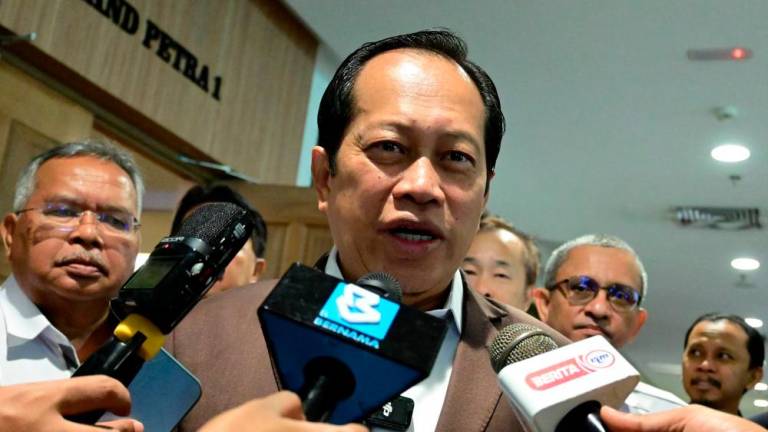KUALA LUMPUR: Banks must do more to help the people, especially the B40 and M40 groups to complement the government’s resolve to stimulate business activity amid the current pandemic.
One pertinent area, which would help the masses, is reducing the interest rate levied on credit card outstanding amounts.
With credit cards in circulation having risen to 9.1 million in January this year, lowering interest rates on credit card outstanding amounts would go a long way in putting money in the hands of more cash-strapped Malaysians.
This is not to say banks have not done anything to help people adversely affected by the economic slowdown due to Covid-19 which left thousands unable to service their loans promptly.
Bank Negara Malaysia’s (BNM) response to help alleviate the rakyat’s suffering arising from the economic hardship has been two-fold, i.e. lowering the Overnight Policy Rate (OPR) and asking banks to introduce a moratorium of six months for all loan payments.
BNM reduced the OPR by 50 bps to 2.0 per cent last month -- the third reduction in OPR this year and resulted in the lowest base lending rate (BLR) since 2010.
With this reduction in OPR, lending rates for all loans in both retail loans like housing loans, hire purchase, investment loans and commercial loans taken by small and medium enterprises, large corporations will see a reduction in interest payments and thereby provide relief to the borrowing community.
For the individual consumer with housing loans or car loans, it would mean more money in their pockets which they can spend on necessities.
While all this is well and good, strangely, none of the banks have reduced the interest rate levied on credit card outstanding amounts.
The rates for new customers at 18 per cent per annum and the customers with good track record at 15 per cent per annum have remained so for many years now - even with the lowest OPR rates currently.
Since the minimum qualifying criteria for a basic credit card remains at RM1,500 per month, the bulk of the segment that would have benefited from this reduction would have been the B40 and M40 segments.
Perhaps BNM should investigate why banks have been reluctant to reduce the credit card outstanding rates while they are able to reduce the housing and car loan rates.
After all, if their basic cost of funds had been reduced, shouldn’t this reduction in rates be passed on to all segments of borrowing customers.
This is more so since BNM is pushing for a cashless society, what more with the proliferation of e-wallets in the digital era.
But it must be noted that a reduction in OPR is a double-edged sword.
While borrowers tend to benefit from lower interest payments, savers and depositors would see a reduction in savings and fixed deposit (FD) rates.
This would adversely impact all savers, especially retirees and the B40 group, who depend on their returns from their savings and deposits for their daily necessities.
When this impact hits the lower income group harder, there would be naturally be a call for BNM to step in to help cushion the impact, perhaps even requesting for a retail bond issuance -- like what was done before.
But the timing of this bond issuance with the low yield environment would be a big challenge even for the central bank.
What is more practical is that since banks have had for years enjoyed cost-free funds, shouldn’t BNM enforce the payment of appropriate interest on current accounts, especially since banks have imposed a fee on cheques issued by depositors since 2010.
Banks enjoy cost-free funds in the form of current account deposits from individuals and companies, as no interest is paid on conventional current accounts.
Only government entities and selected large corporates earn interest on current accounts, whereas Islamic current accounts earn profit sharing.
It must be pointed out that the current environment of low interest rates is here to stay for the next one to two years or maybe longer, so people need to factor this in their retirement plan.
Currently, some countries in Europe do not pay interest on deposits because of the negative rates set by the central banks for interbank funds.
Hopefully, this scenario will not happen in the Malaysian banking and financial sector.
Perhaps, what depositors need to do is to manage their deposits actively.
For instance, they could move them to financial institutions that reward depositors on ‘additional’ funds that they bring in like the savings top-up campaign some banks are running currently.
This way they get rewarded with higher deposit rates for additional funds to their savings balance.
Why this is recommended is for depositors to be able to earn higher returns now that it has been made easier to move funds 24/7 in the banking system.
Besides this, moving funds these days has also been made easy with online banking.
It is easy to see that the low interest rate regime would prevail for the next one to two years at least.
As this would be the new normal, there are several critical considerations that banks, financial institutions and customers, need to be cognizant about when planning for the future.
One of the major considerations is whether there is a need for banks and financial institutions to rigorously test their products in a “worst-case” scenario to build the agility to be able to tweak them to suit the current needs of the customers.
For example, in a fixed rate loan, perhaps they should offer several flexible options for repayment to the customer in times of need.
They could automatically allow lower repayments when the need arises and “stepped-up” ‘repayments when the customer has the ability to pay more without the need for additional documentation.
This would overcome inherent weakness of the moratorium since borrowers would be hard-pressed to go to banks with the Covid-19 virus still lurking around.
With no one really sure when the economy would recover, it’s best that banks do more to help the people wherever they can to join government efforts to lift the economy out of the current doldrums.
After all, banks must bear in mind that borrowers, savers and depositors are the ones who give them the business that allows them to report handsome profits annually.
It’s about time banks return the favour so to speak to help ordinary Malaysians in what could be their greatest hour of need. - Bernama














